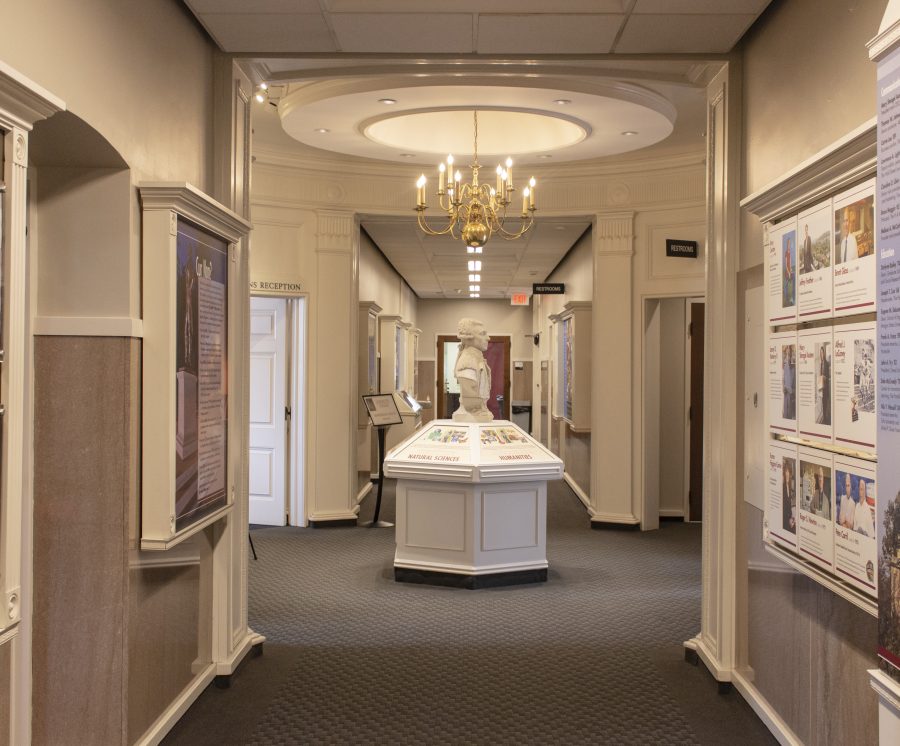As the college enters the final stages of its three-year self study, which was created for the reaccreditation process with the Middle States Commission on Higher Education (MSCHE), it is touching base with all areas of campus to ensure the review is holistic and comprehensive.
Classics professor Markus Dubischar, who is co-chair of the Steering Committee for the self study, said that in the past, colleges could choose some of 14 attributes to be examined through the process, but now MSCHE requires “a more comprehensive approach.”
The commission, which is a voluntary, non-governmental membership organization that examines institutions holistically, according to its website, asks that schools examine themselves in all of seven areas: Mission and Goals; Ethics and Integrity; Design and Delivery of the Student Learning Experience; Support of the Student Experience; Educational Effectiveness Assessment; Planning, Resources and Institutional Improvement; and Governance, Leadership and Administration.
To tackle this, a steering committee of Lafayette faculty, staff, trustees and administrators was formed, co-chaired by Dubischar and Jamila Bookwala, Dean of Academic Initiatives. This steering committee has been overseeing seven working groups, each of which focused on one of the standards provided by MSCHE. All working groups consisted of about seven or eight people, resulting in close to 60 people across campus having direct involvement in the self study.
Last spring, the seven separate reports created by the working groups were compiled to create a comprehensive, 100-page report that was presented to various constituencies across campus at open meetings. These meetings encouraged faculty, staff and students to voice concerns or ask questions about the process and the self study findings. A second round of open meetings took place last week.
Dubischar said that as a self study, the process was meant to be transparent and participatory at every stage.
At the beginning of the fall semester, the compiled reports were presented to President Alison Byerly, Provost Abu Rizvi and Dean of Faculty John Meier. Dubischar said that these reviews allowed for “finishing touches” to be made before the study is submitted again to Byerly, who will be the one to submit the final report to Middle States.
Dubischar felt that the whole process helped him to learn about the college.
“I’m even more impressed with Lafayette than I’ve been before [this process]. It’s a dynamic and healthy institution with the right priorities,” he said.
Bookwala also said she felt that the self study gave Lafayette a chance “to pause and take a long deep hard look at ourselves.” The past two years of intensive self-reflection as an institution led her to see Lafayette as more “accountable to ourselves going forward.”
The committee hopes to make the self study available in its final version to the campus in the next few weeks. This self study report will include the findings of each working group, exhibiting the college’s strengths and weaknesses across the board.
Dr. Jared Cohon, a former president of Carnegie Mellon University, is the chair of the team of peer-institution reviewers that will make the recommendation to, or not to, reaccredit Lafayette. Cohon will be visiting campus on Nov. 27 to meet with key individuals in the process.
While the self study is coming to a close, the process will not officially end until June 2019 when the decision comes from MSCHE. Between now and then, reviewers from comparable institutions will visit the college from April 10-12, 2019. They will offer feedback to the school in terms of suggestions, recommendations and requirements to earn accreditation. Dubischar said he is “cautiously optimistic.”
A former chair of a reaccreditation committee herself, Byerly is familiar with the genre and “thought the committees and those involved did an excellent job synthesizing a ton of material…demonstrating the regular kinds of things… and where we’d like to head.”
“I can’t say that anything stood out to me as a glaring issue,” Byerly said. “One of the things I liked about this study is that it connected what we are doing to our strategic direction and our efforts to become more affordable…and support students.”
“We feel pretty confident that we’ll be accredited,” Byerly added.





















































































































